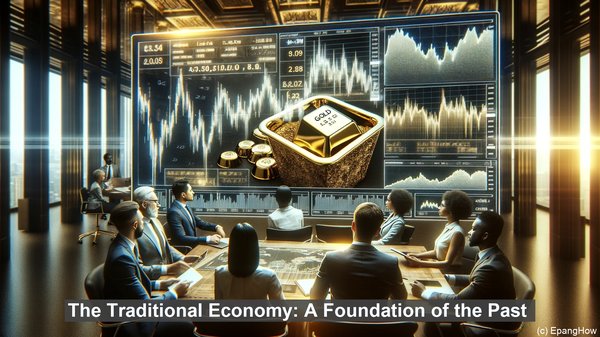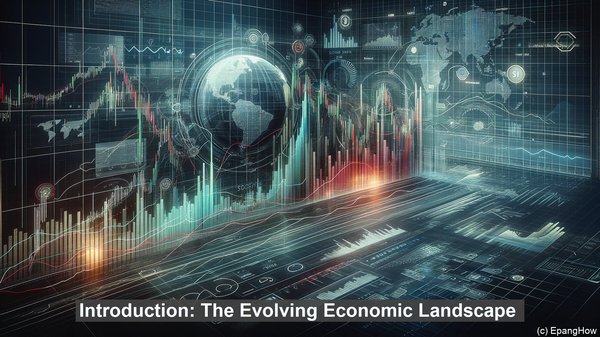Introduction: The Evolving Economic Landscape
Hello everyone! The world of economics is undergoing a significant transformation, primarily driven by the rapid advancements in digital technologies. In this article, we’ll delve into the nuances of the digital economy and compare it with the traditional economy. By the end, you’ll have a comprehensive understanding of how these two systems differ and the implications they hold for various stakeholders.
Defining the Digital Economy
Let’s start by defining the digital economy. Simply put, it refers to the economic activities that are primarily based on digital technologies. This includes everything from online marketplaces and e-commerce platforms to digital payment systems and cloud computing. In the digital economy, information and data are the key resources, and they are exchanged, processed, and monetized at an unprecedented scale.
The Traditional Economy: A Foundation of the Past
In contrast, the traditional economy is the age-old system that has been in place for centuries. It relies on physical resources, such as land, labor, and capital, to drive economic activities. The exchange of goods and services in the traditional economy often happens through physical marketplaces, and transactions are predominantly cash-based. While this system has served us well, it’s important to recognize its limitations in the face of the digital revolution.
Key Distinctions: Speed, Scale, and Reach
One of the most striking differences between the digital economy and the traditional economy is the speed at which transactions occur. In the digital realm, a purchase can be made with just a few clicks, and the goods can be delivered within hours. This level of efficiency is unparalleled in the traditional economy, where processes can be time-consuming and involve multiple intermediaries. Additionally, the digital economy operates at a global scale, with businesses and consumers connected across borders. This global reach opens up immense opportunities for growth and collaboration.

Transformation of Sectors: Examples of Disruption
The impact of the digital economy is felt across various sectors. Take the retail industry, for instance. Brick-and-mortar stores are facing stiff competition from e-commerce giants who offer convenience, competitive pricing, and personalized recommendations. Similarly, in the entertainment industry, streaming platforms have revolutionized the way we consume content, challenging the dominance of traditional broadcasting. These examples highlight how digital technologies are not just enhancing existing processes but completely reshaping industries.
The Role of Data: A Valuable Asset
In the digital economy, data is often referred to as the ‘new oil.’ It’s a valuable resource that, when harnessed effectively, can drive innovation and create new business models. From personalized marketing campaigns to predictive analytics, data is at the core of many digital strategies. In the traditional economy, while data is still important, its collection and analysis are often more limited in scope.

Challenges and Opportunities: Navigating the Digital Economy
While the digital economy offers immense potential, it also presents its fair share of challenges. Issues such as data privacy, cybersecurity, and the digital divide need to be addressed for a more inclusive and sustainable digital future. However, with the right policies, investments, and skill development initiatives, these challenges can be mitigated. For individuals and businesses, embracing digital transformation and continuously updating skills will be crucial to thrive in this dynamic landscape.
